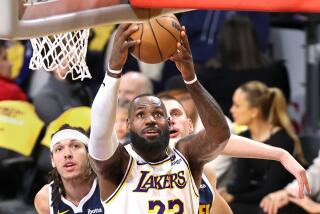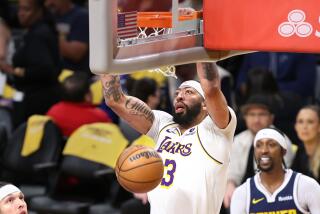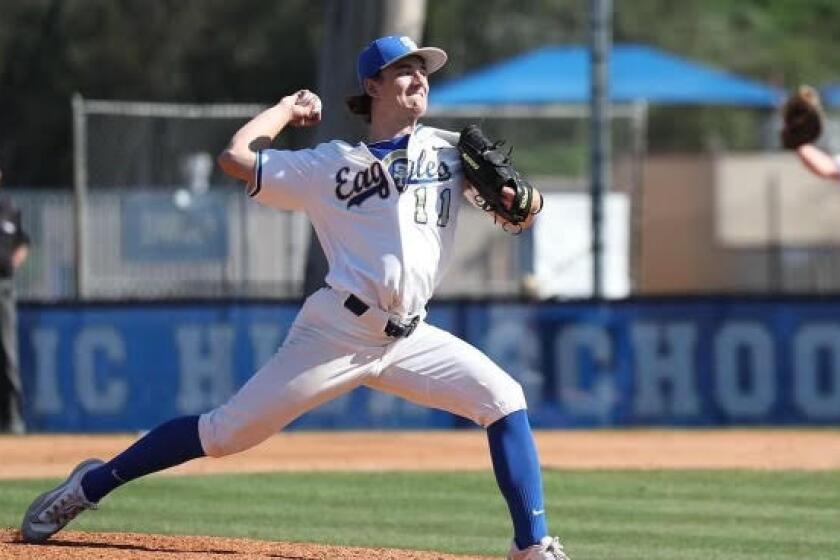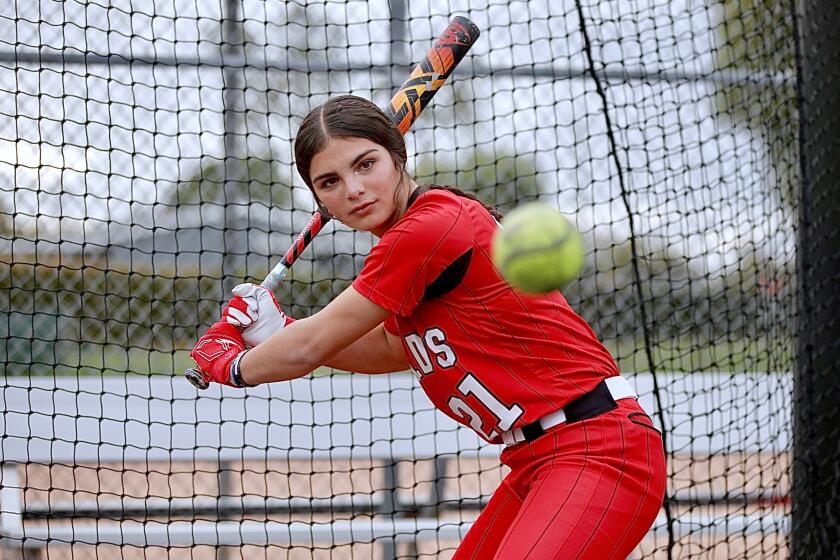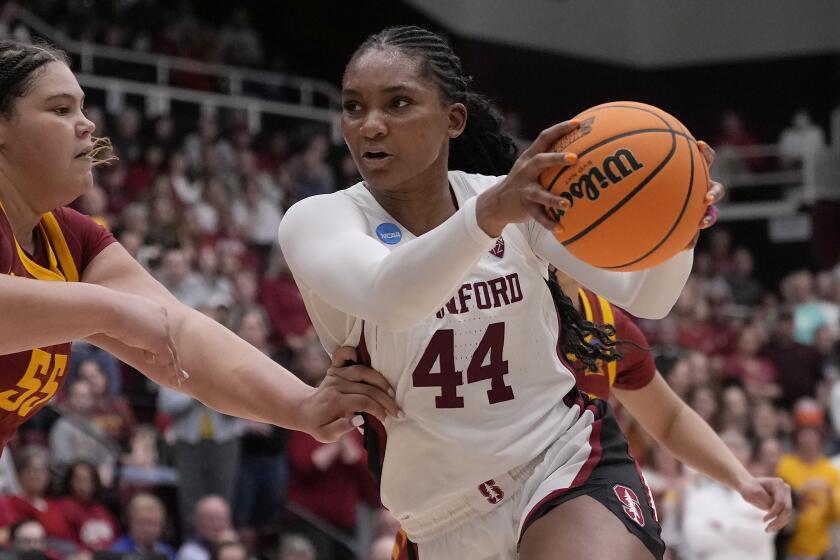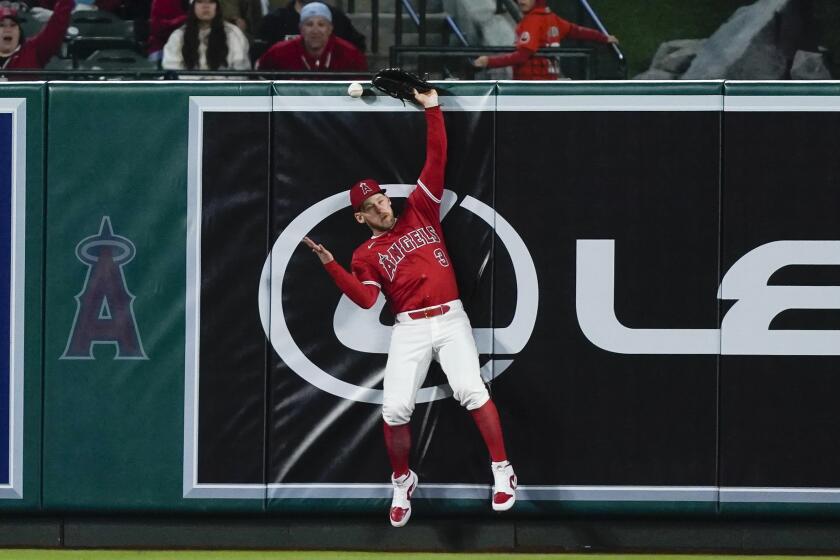NCAA officials answer critics
INDIANAPOLIS -- A few minutes into the interview, the NCAA’s head of enforcement pauses to make himself clear.
“I’m not going to talk about specific cases,” he says.
David Price has a policy about speaking publicly. In this instance, he refuses to discuss former USC athletes Reggie Bush and O.J. Mayo, both of whom are suspected of accepting extra benefits while in school.
The Bush investigation has stretched past two years and the Mayo case, launched in May, could extend into 2009, reviving questions about the NCAA’s ability and even willingness to police its member schools.
Mindful of such criticisms, Price and several of his 29 investigators recently agreed to address -- in general terms -- how they respond to potential violations.
The interviews took place at NCAA headquarters, a four-story complex at the edge of downtown highlighted by a sunlit atrium and a Michael Graves-designed museum.
The offices feature an open design, workers dressed casually, but there was a clear sense of gravity. Price met with a reporter one on one; his staff faced questions as a group, gathered around a table in a small conference room. In both instances, a public relations representative sat nearby, taking notes.
“Our investigators are very much out there on the line,” said Tom Hosty, an enforcement director. “They know they’re being scrutinized.”
The NCAA does catch flak from both sides: Although some say it has no teeth, others insist it is too tough, acting beyond the scope of law.
The allegations that trigger investigations reach Indianapolis through tips from rival coaches, disgruntled professors or even the Internet. Athletic departments hear of a potential violation and report it themselves, hoping to lessen subsequent penalties.
Any hint of trouble can send athletic directors, coaches and athletes scrambling for their attorneys, so about two-thirds of the investigators have legal degrees. But they do not act as prosecutors, serving only to gather information for the Committee on Infractions, which consists of representatives from member schools and the public.
With limited staff to oversee more than 1,000 member institutions, Price often asks schools to conduct the investigations themselves or at least help. The schools may use their own compliance offices or hire law firms staffed by former NCAA investigators.
The NCAA reviews each report and often re-interviews key figures. The Pacific 10 -- the only large conference that investigates major infractions -- might get involved if one of its schools is accused.
Still, skeptics wonder about letting the accused participate in the inquiry. They point out that the NCAA serves at the behest of university presidents and profits handsomely from television revenue generated by its best teams.
“Most people don’t understand -- the NCAA is the schools themselves,” said Arthur Fleisher III, co-author of “The National Collegiate Athletic Association: A Study in Cartel Behavior.”
The Bush and Mayo cases epitomize an increasingly common situation, the NCAA chasing after marketers, financial consultants and runners, the shadowy figures who represent sports agents. This isn’t like a coach handing over cash. These people operate on the fringe of college sports, where NCAA investigators have no subpoena power and no legal recourse against those who might lie.
Even the athletes -- Bush plays for the New Orleans Saints, Mayo for the Memphis Grizzlies -- no longer fall under NCAA authority.
Bush and his family, facing a civil lawsuit filed by one of the erstwhile marketers, informed NCAA investigator Angie Cretors they would not be talking any time soon.
“I guess the tone [NCAA investigators] used was kind of presumptuous, but that was easily dealt with,” their attorney, David Cornwell, said. “We were very clear from the beginning with Ms. Cretors -- my focus would be on protecting the interests of Reggie and his parents.”
Mayo has promised to cooperate but has yet to meet with the NCAA.
Current and former investigators said that when they cannot interview a targeted athlete, they compensate by approaching teammates and past coaches, neighborhood friends, anyone willing to talk.
Bob Minnix, who spent 20 years with the NCAA and now works for Washington State, explained in a separate interview: “I’ll talk to your sister, your brother, your mother, until somebody tells me the truth. You’ve got the jilted girlfriend squealing on Joe because he dumped her for a cheerleader. Or the booster who squeals on a kid who chose another school.”
Investigators might attempt to access bank or telephone records. They might interview classmates, asking about expensive clothes or new cars.
“If we can work around the edges, getting some information, then we leverage the people we haven’t contacted and say here’s some information we’d like you to respond to,” said Julie Roe, an enforcement director. “That might motivate them to sit down and talk with us.”
The NCAA also has what Price calls “tools of authority,” its bylaws requiring cooperation from coaches, administrators and athletes still on the team.
“I’m not going to sit here and tell you that everyone is truthful with us,” Price said. “But if they lie, they do so at considerable risk.”
An unethical conduct charge could render an athlete ineligible or cost a coach his job.
With these “tools,” and a subsequent committee hearing not bound by law, some say the NCAA wields too much power.
“They do not have to give you any of the due process rights guaranteed under the Constitution,” said Thomas Gallion, an attorney who represented two Alabama football assistants in a 2002 case.
“You have someone who can put a college program out of business and ruin a coach,” Gallion said. “You can understand that every coach, every administration lives in fear of them.”
Lloyd Lake, the would-be marketer who is suing Bush, spoke to investigators last year. His lawyer came away impressed.
“The wealth of information they had, prior to even meeting with us, kind of shocked me,” attorney Brian Watkins said. “They knew stuff we didn’t even know.”
Even if no one at USC provided extra benefits, the school could face penalties if investigators find a “lack of institutional control.” The definition of institutional control is not as cut-and-dried as it is with other violations. Price talks about needing to “weigh the circumstances.”
“The schools have to pay attention,” he said. “They know what their kids are driving. They know where their kids are living.”
But he cites a 1995-96 case in which former USC tailback Shawn Walters served a 12-game suspension for receiving extra benefits from a roommate who acted as a runner. The program was not punished.
“How in the world was the coach supposed to know that?” Price said. “You don’t expect a coach to know everything a kid’s doing 24 hours a day.”
NCAA investigators call it common sense -- while gathering evidence of extra benefits, they determine whether the athletic department kept track of such things as the athlete’s summer employment and living accommodations.
“As you’re focusing on a particular violation, you’re going to be saying, did they have a system in place that could have prevented this violation or even detected it?” veteran investigator LuAnn Humphrey said. “And if so, were they doing anything to monitor it, to make sure they were on top of it.”
Investigators might catch a break with Bush -- attorney Watkins plans to question him and his family in depositions. Court records have bolstered past investigations, including a recent case that resulted in penalties against the Ohio State basketball program.
“We’ll take whatever information we can get,” Roe said.
For now, it is difficult to gauge the status of the Bush and Mayo cases, what information the NCAA has or still needs. But Price estimates that 85% to 90% of the major investigations his department launches result in some finding or penalty.
As the months stretch on, he says, “You shouldn’t have the impression that the enforcement staff is impotent.”
--
--
Background
* Reggie Bush is suspected of taking money and gifts from would-be sports marketers in San Diego. His parents face similar allegations.
* O.J. Mayo came under scrutiny after claims that a Los Angeles events promoter acted as a runner, funneling cash to him on behalf of an agent. Both athletes have denied any wrongdoing.
* Bush and Mayo could be found retroactively ineligible, which could jeopardize Bush’s status as the 2005 Heisman Trophy winner. Additionally, the USC football and basketball programs could lose scholarships and forfeit past victories if the NCAA decides they knew or should have known about alleged violations.
* In Bush’s case, his parents lived without paying rent in a San Diego-area home owned by one of the marketers. While other violations allegedly occurred away from Los Angeles, Bush was seen on campus driving a 1996 Chevrolet Impala that was registered in his name but allegedly paid for by the marketers.
* Mayo allegedly received gifts that included new clothes and a flat-screen television in his dorm room.
-- David Wharton
More to Read
Get our high school sports newsletter
Prep Rally is devoted to the SoCal high school sports experience, bringing you scores, stories and a behind-the-scenes look at what makes prep sports so popular.
You may occasionally receive promotional content from the Los Angeles Times.
